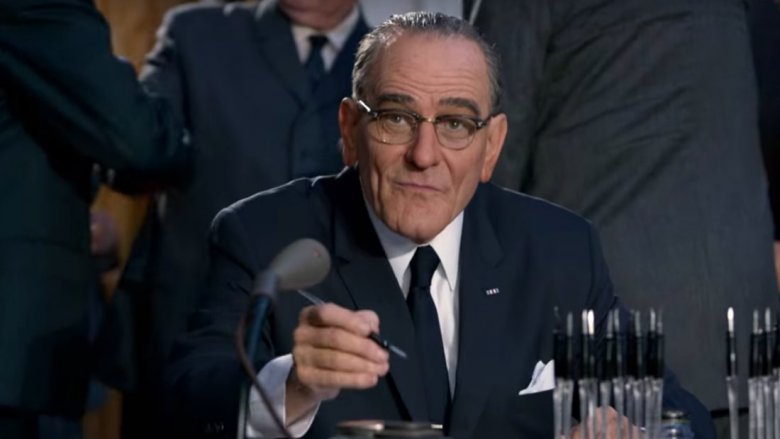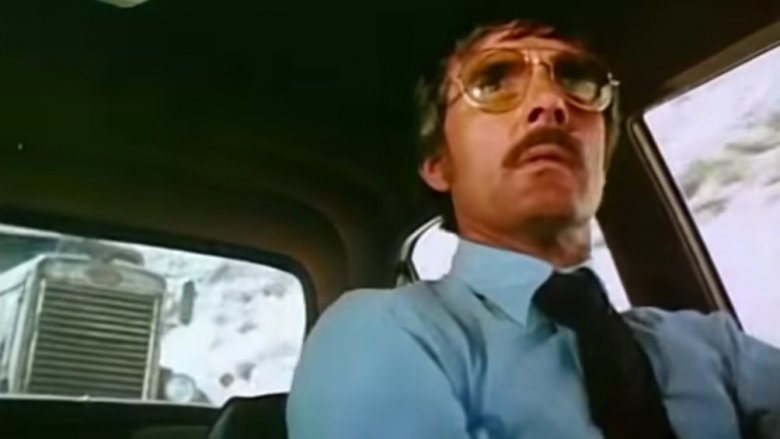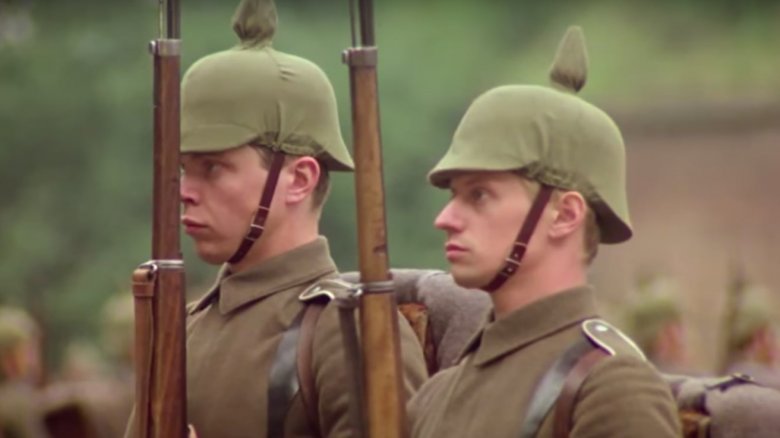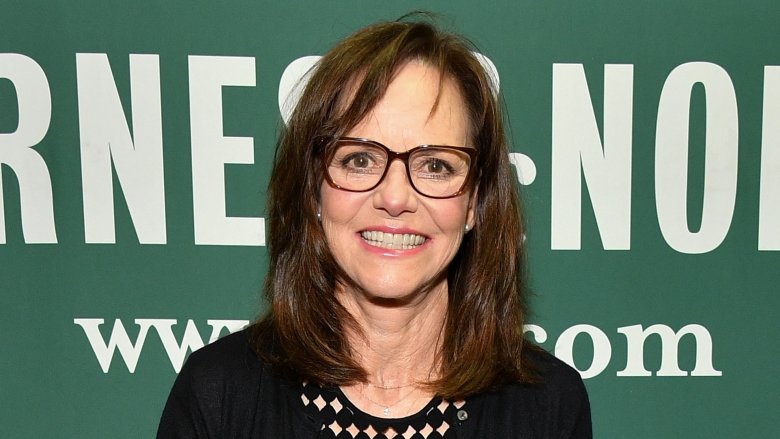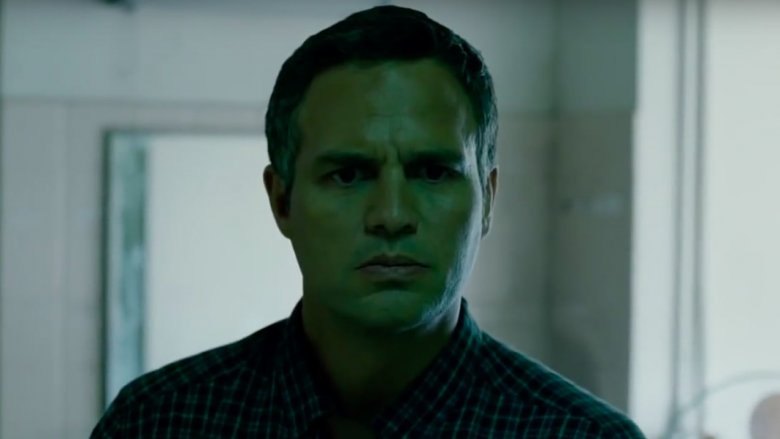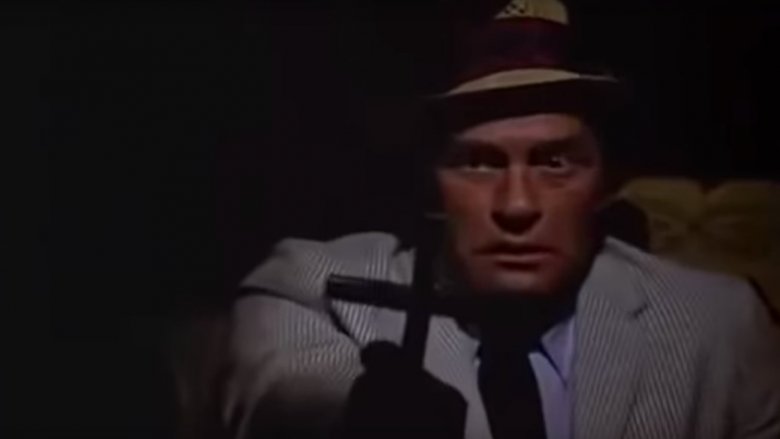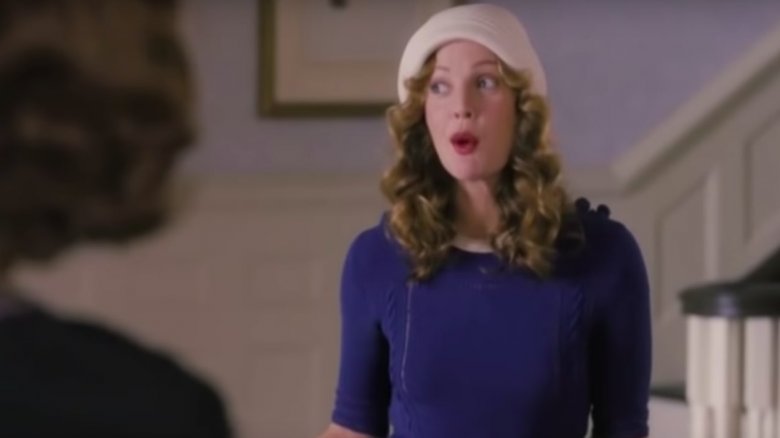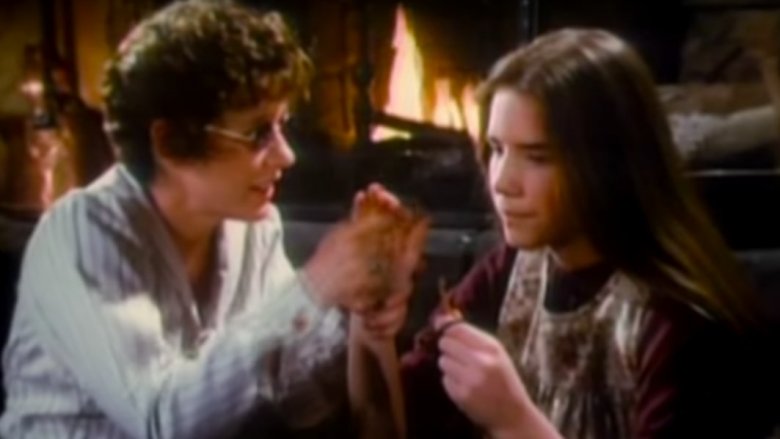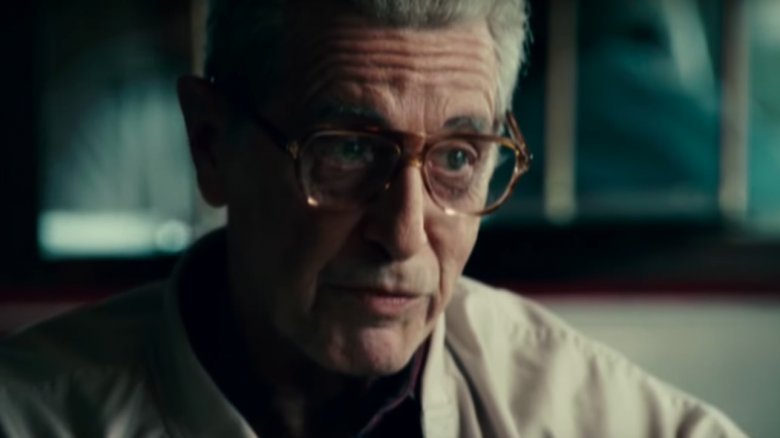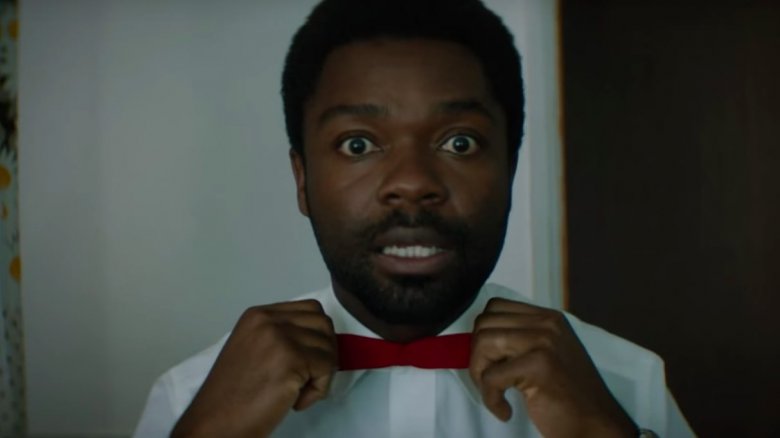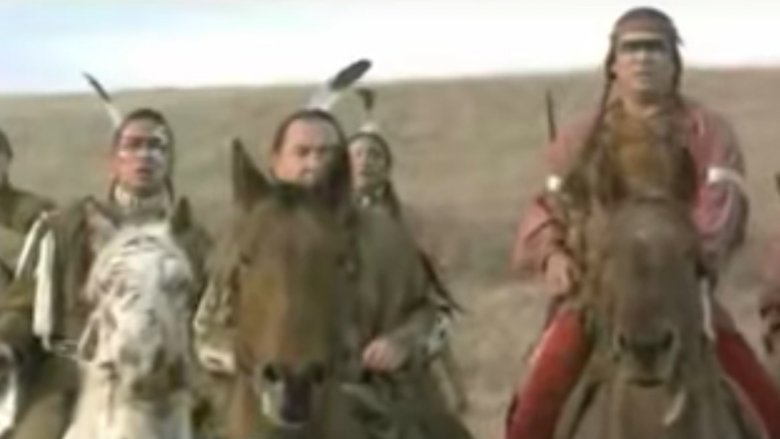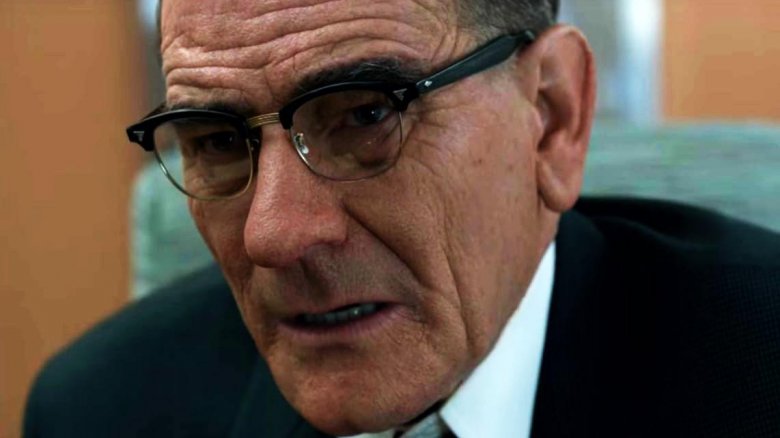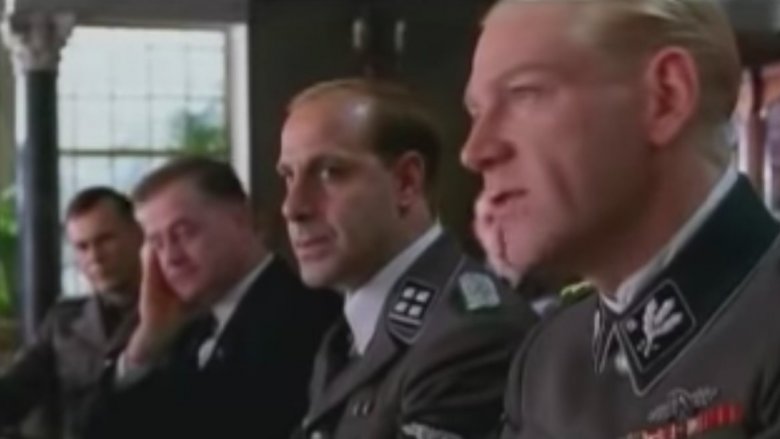TV Movies That Are Actually Worth Watching
We may receive a commission on purchases made from links.
Made-for-TV movies have traditionally gotten a bad rap, but perhaps their lackluster reputation is undeserved. Sure, there are plenty that are packed with cheesy dialogue and acting that seems more fitting for a soap opera than a feature film, and you may have to sit through a few commercials during major cliffhanger moments, but there are plenty of gems that have never seen a theatrical release.
It's shame that so many movie buffs write them off because when you think about it, a quality made-for-TV movie is actually a great deal. You can enjoy the experience from the comfort of your home in your coziest pajamas, you'll save on the cost of a movie ticket, and you won't even be tempted to spend $9 on a soda. Here are a few made-for-TV movies that are actually worth watching.
Duel
Duel was first aired in 1971, and over 50 years later, it's still widely known as one of the best made-for-TV movies of all time. Based on the short story of the same name by Richard Matheson, Duel stars Dennis Weaver and represents Steven Spielberg's directorial debut.
The film follows protagonist David Mann, who is on the road for a business trip when he finds himself being stalked through the empty roads of the Mojave Desert by a mysterious truck driver. The identity and motives of the truck driver are never revealed, creating a foreboding fear of the unknown that carries through the entire film.
The film was so well received that it eventually received a limited theatrical release, and it basically established Spielberg as an up-and-coming director. Duel won a Primetime Emmy for outstanding achievement in film sound editing, and it was also nominated for a Golden Globe for best TV movie.
All Quiet on the Western Front (1979)
Based on the 1928 book by Erich Maria Remarque, All Quiet on the Western Front was originally released as a feature film in 1930 and would win an Academy Award. In 1979, a television adaptation directed by Delbert Mann and starring Richard Thomas and Ernest Borgnine aired for the first time.
All Quiet on the Western Front focuses on the experiences of German soldiers during World War I, primarily following the young soldier Paul Baumer and his supervisor Stanislaus "Kat" Katzinsky. It also explores the alienation they feel from everyday civilian life when they are able to visit home. As Paul witnesses a level of destruction that he never could have anticipated, his innocence slowly crumbles, and one by one, he loses the friends he made in the trenches. The film was successful enough that it got a theatrical release and won the Golden Globe for best TV movie.
Sybil (1976)
Based on the 1973 book of the same name by Flora Rheta Schrieber, the television adaptation of Sybil clocks in at over three hours, and it was originally aired in two parts. Directed by Daniel Petrie and starring Sally Field and Joanne Woodward, Sybil tells the true story of Sybil Dorsett, a woman who struggled with dissociative identity disorder. At the time the film was produced, this condition was not well understood, and it was typically called multiple personality disorder. While working with a psychiatrist, Sybil uncovers 16 distinct personalities. Over the course of the film, Sybil eventually comes to understand that her disorder is the result of childhood abuse at the hands of her mother.
Sybil still airs frequently, and the film won several Primetime Emmy Awards. Sally Field in particular was praised for her starring role as Sybil, and she received a Primetime Emmy for Outstanding Lead Actress in a Drama or Comedy Special. The book was adapted for television once again with a 2007 remake.
The Normal Heart
The Normal Heart is one of the many critically acclaimed made-for-TV films produced and distributed by HBO. Directed by Ryan Murphy, The Normal Heart was based on Larry Kramer's 1985 play of the same name. Kramer also served as the screenwriter for the film adaptation. The film stars several big names, including Mark Ruffalo, Matt Bomer, Jim Parsons, and Julia Roberts.
The Normal Heart takes place in New York City during the beginnings of the HIV/AIDs crisis in the early 1980s. The film focuses primarily on writer and activist Ned Weeks, portrayed by Ruffalo, a confrontational figure who runs an HIV advocacy group and often clashes with his friends and closeted boyfriend, Felix, on how to best serve the gay community during this tumultuous time. Although some critics were unimpressed with Murphy's directing, the film was well received overall, and Kramer's screenplay was especially praised. The Normal Heart won a Primetime Emmy for Outstanding Television Movie, and Ruffalo and Bomer received plenty of accolades for their portrayals of Ned and Felix.
The Night Stalker (1972)
Directed by John Llewellyn Moxey, the 1972 movie The Night Stalker was based on the then-unpublished novel The Kolchak Papers by Jeff Rice. Although Rice struggled to find a publisher, the story turned out to be well-suited to the screen, and the television adaptation starred Darren McGavin, Simon Oakland, Carol Lynley, and Barry Atwater.
The Night Stalker follows investigative reporter Carl Kolchak, who suspects that a recent string of local homicides are not the work of a serial killer, but a bloodthirsty vampire. He struggles to defeat the evil forces at work and gather the evidence to prove his supernatural theory. The film earned the highest ratings of any made-for-TV movie at the time, and it spawned a sequel, The Night Strangler. From there, the franchise expanded to include a TV series titled Kolchak: The Night Stalker, with McGavin continuing in his leading role as Kolchak. A series remake titled Night Stalker also aired in 2005.
Grey Gardens (2009)
The biographical drama film Grey Gardens was a huge hit — if you're already familiar with the Broadway musical Grey Gardens or the documentary of the same name, you'll understand why the story of the two eccentric Beale women has captivated audiences for decades. Directed by Michael Sucsy and starring Drew Barrymore and Jessica Lange, the film chronicles the lives of Jackie Kennedy's aunt Edith Bouvier Beale and her daughter of the same name, known as "Big Edie" and "Little Edie."
Both women were wealthy socialites in New York City, but when Big Edie's husband leaves her, Little Edie realizes she has to prioritize supporting her mother, and her dreams of becoming an actress are over. The two women become reclusive and stay at their estate, Grey Gardens, becoming the center of local gossip as the estate falls into decay.
Grey Gardens was nominated for a whopping 17 Primetime Emmys in 2009, and it won for Outstanding Television Movie. It was also awarded the Golden Globe for Best Miniseries or Motion Picture Made for TV.
The Miracle Worker
You've probably heard the incredible story of Helen Keller, and if you're ever interested in learning more about her remarkable life, it's worth seeing it come to life in the 1979 film The Miracle Worker. The Miracle Worker was based on the 1959 William Gibson play of the same name, which was originally inspired by Helen Keller's autobiography, The Story of My Life.
Directed by Paul Aaron, The Miracle Worker stars Melissa Gilbert as Helen Keller and Patty Duke as Anne Sullivan. The film explores the many obstacles Helen faced in her early life after becoming blind and deaf, and how Anne Sullivan was able to communicate with her and open her up to the world. The film won a Primetime Emmy for Outstanding Drama or Comedy Special. A television sequel to The Miracle Worker, titled Helen Keller: The Miracle Continues, aired in 1984, and Disney also produced their own adaptation of the film in 2000.
You Don't Know Jack
Directed by Barry Levinson, the critically acclaimed biopic You Don't Know Jack stars Al Pacino, Danny Huston, Susan Sarandon, and John Goodman. The screenplay was based on the book Between the Dying and the Dead by Neal Nicol and Harry Wylie.
The film chronicles the life of Dr. Jack Kevorkian, who provided assisted suicide services to people with terminal illnesses or severe disabilities. After seeing one of his patients die an unnecessarily painful death, he decides to take matters into his own hands and help people die peacefully. Although there are many people who support his philosophy of allowing others to die with dignity, he became a highly controversial figure. Kevorkian eventually went to trial four times before serving eight years in prison.
You Don't Know Jack got a very positive critical reception, especially when it came to Pacino's performance as Kevorkian. The film scored 15 Primetime Emmy nominations, and Pacino picked up Emmy, Golden Globe, and Screen Actors Guild awards for his portrayal of Kevorkian.
Nightingale
Nightingale is an unsettling exploration of a disturbed man's psyche — it's the kind of film that still has the power to make your skin crawl even after the credits have finished rolling. Directed by Elliott Lester, the film stars David Oyelowo as Peter Snowden, an unstable man who vlogs about his exploits to a mysterious online audience. While talking to his camera, he reveals his obsession with Edward, an old friend he met while serving in the military. It's clear that most of their connection is in Snowden's head, but Snowden insists on reaching out to Edward anyway. But when Edward rejects Snowden's invitation for dinner and shuts down his fantasies of the two of them running away together to start a new life, Snowden realizes his world has crumbled around him, and he knows he's doomed.
Oyelowo's performance was definitely a standout, and he was universally praised for his portrayal of Snowden. Nightingale earned a Primetime Emmy nomination for Outstanding Television Movie.
Bury My Heart at Wounded Knee
Adapted from the Dee Brown book of the same name, Bury My Heart at Wounded Knee tells the stories of Native Americans living in the American West during the mid-1800s as they were forced to leave their traditional lifestyles behind and integrate into a new society. The film, which stars Aidan Quinn, Adam Beach, August Schellenberg, and Anna Paquin, also pulls from other source materials and historical events that occured during this time period.
The title of the film is a reference to the 1890 massacre of 200 Native Americans at Wounded Knee Creek, which dashed hopes that a spiritual revival movement could promise an end to the suffering of the indigenous people. This event marked a turning point in Native American history, and it became clear that for most tribes, there was no chance of returning to their old ways of life. Bury My Heart at Wounded Knee won six Primetime Emmy Awards, including one for Outstanding Television Movie.
All the Way
The biographical drama All the Way has an all-star cast: Bryan Cranston, Anthony Mackie, and Melissa Leo all share the screen in this television adaption of Robert Schenkkan's Broadway play of the same title. Cranston, who stars in the film as former President Lyndon B. Johnson, also portrayed LBJ in the Broadway version.
The film chronicles LBJ's time as president of the United States, from being sworn in right after John F. Kennedy's assassination to the passage of the Civil Rights Act to his campaign against Barry Goldwater. It also explores how the Democrats lost control of the Deep South during LBJ's presidency. It's definitely a must-see for any history buff or political science enthusiast. All the Way was among HBO's most-watched original movies for a while, and the film got plenty of attention when awards season rolled around. Cranston definitely earned his praise for his portrayal of LBJ, and he was nominated for a Golden Globe for his role.
Conspiracy
The 2001 film Conspiracy was a collaborative production between the BBC and HBO. Directed by Frank Pierson, Conspiracy stars Kenneth Branagh, Stanley Tucci, and Colin Firth, and was aired on BBC to commemorate Holocaust Memorial Day.
The plot focuses on a single meeting during World War II: the 1942 Wannsee Conference. Several Nazi government officials gathered to discuss the "Final Solution" and how to implement Adolf Hitler's horrific policy proposals. The film explores the psychology of the historical individuals who attended this conference and the roots of such extreme hatred. Although the film does not recreate any events that happen after the end of the meeting, it does not need to for its message to be effective.
For his role as Adolf Eichmann, Tucci was awarded the Golden Globe Award for Best Supporting Actor, and Branagh earned a Primetime Emmy for Outstanding Lead Actor in a Miniseries or Movie for his portrayal of Reinhard Heydrich.
